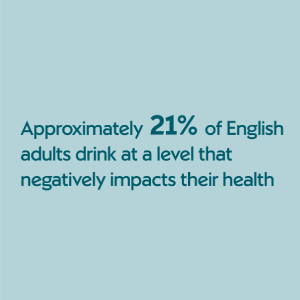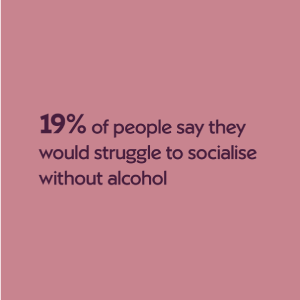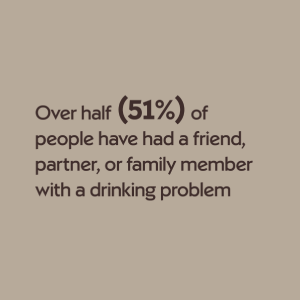How to stay sober and enjoy Christmas without alcohol
- Overview
- Key takeaways
- 1. Plan what your Christmas looks like
- 2. Let people know that you’re not drinking
- 3. Lean on your support network
- 4. Don’t feel the need to attend every party
- 5. Leave when you’re comfortable
- 6. Indulge elsewhere
- 7. Learn more about yourself
- 8. Embrace a hangover-free Christmas
- 9. Keep track of how much money you save
- 10. Set time aside for reflection
- Related articles
If you’re looking to abstain over the festive season or it’s your first sober Christmas, there’s plenty you can do to enjoy the period without thinking about alcohol.
Key takeaways
- Christmas can be a very difficult time for people with a drinking problem
- What a sober Christmas looks like for you all depends on your long term goals
- Communicate with friends and family and let them know that you’re taking some time off
- Spend all your free time doing the things you love
- Don’t go to places that make you uncomfortable
- Spend the cash you save on something nice for yourself or a loved one
- Use sober time to reflect on your relationship with alcohol and how that may have changed
1. Plan what your Christmas looks like
Whether you’re newly sober or testing the water with a dry December, having a plan in place will help you stick to your commitment.
Depending on your situation you might prefer a quiet gathering with friends and family over a late night at the pub. The key is to know what you’re comfortable with and to not let outside influence or situations affect your decision to abstain over Christmas.
Much like a diet or exercise plan, knowing where you’re going to be and what you’re going to be doing can help you steer clear of situations that might be uncomfortable or unsettling.
2. Let people know that you’re not drinking

If you’re newly sober or experiencing your first Christmas without a drink, this time of year can feel manic. There’s alcohol everywhere and it sometimes feels like you’re the only one not enjoying yourself with a glass in your hand.
Telling friends and family that you’re not drinking can help take the weight off your shoulders and build out your support network during December. It’s all about making you as comfortable as possible.
By telling others that you’re not drinking, you also give them permission to enjoy the festive season without alcohol too. Suggesting fun alternatives to late nights at the pub or boozy office drinks in the run up to Christmas will mix things up and bring a new perspective to the party season.
3. Lean on your support network
Having a support network is one thing but using it when you need to is another.
If you’re struggling at any point, know that there are people to talk to and places you can go where you’re not alone.
If you have friends and family who know you aren’t drinking, talk to them about how you’re feeling. If you find the festive period extremely difficult, click any of the links below to access a range of valuable staying sober resources:
- FRANK: Find Local Drug and Alcohol Support Services Near You
- NHS advice on drug and alcohol addiction
- Alcoholics Anonymous UK Meeting Finder
- Get Help Now with Alcohol Change UK
- Alcohol Support Services with drinkaware
- Turning Point Drug and Alcohol Support
4. Don’t feel the need to attend every party

Remember that an invite is exactly that. Just because you’re invited to an event, doesn’t mean you have to attend.
If you aren’t sure how to communicate a polite “no” to someone, try saying “I’m taking some time off drinking this Christmas” and leave it at that. You don’t need to go into detail if you aren’t asked.
If you are pushed for an answer, be assertive and remind yourself that your decision to not drink is a personal one that doesn’t require an explanation.
5. Leave when you’re comfortable
Many newly sober people endure gatherings and parties because they feel they have to. When you’re at an event, check how it is making you feel and if you feel like leaving, do so.
These personal boundaries are there to keep you safe and overstepping them can quickly lead to discomfort.
Most parties at Christmas revolve (in some form) around drinking. Leaving when the tone of the party starts to shift is a great way to enjoy yourself in a safe and secure way.
Prioritise your mental and emotional wellbeing and remember that leaving early is a proactive choice to safeguard your sobriety.
6. Indulge elsewhere
One of the great things about not drinking is that it opens up a lot of time for other things.
If you’re giving up for December, focus on all the other amazing things that Christmas has to offer. This might mean eating more or enjoying all the free time you’ve got with your family.
Spend time with young family members who are excited to see you, or take a trip away and visit some of the amazing Christmas markets the UK has to offer.
7. Learn more about yourself

Many people who abstain from alcohol find that their behaviours and habits start to change over time.
You’ll discover new hobbies, find out things you love to do that don’t involve drinking or alcohol, and learn more about what you enjoy doing when you’re sober.
Setting a focus for the month can really help you appreciate the many great things around you. This might mean committing to appreciate time spent with family more, or to being grateful for all the positive things in your life.
This is also a helpful way to divert your thinking toward something more positive and away from not drinking as a “negative” statement.
8. Embrace a hangover-free Christmas
One of the big advantages of not drinking is not getting hungover.
The joy of waking up with a clear head should not be overlooked, especially at Christmas. You’ll have more energy to play with younger family members, and more appetite for the amazing food that comes out at Christmas.
Embrace the clarity and energy that come with being sober and allow yourself to fully engage with activities unburdened by the physical and mental symptoms of a hangover.
9. Keep track of how much money you save
It’s no secret that drinking can get expensive, especially at Christmas.
Keep track of how much you’re saving by not drinking in December and buy yourself or a loved one a nice Christmas present. This is a lovely way of showing how much you care about someone, and it gives you a great incentive to keep going if you’re lacking motivation to keep going.
The practice of putting the money you’d otherwise spend on drink aside is a great bit of motivation for people in sobriety. It quickly adds up and offers a unique financial perspective on your drinking.
10. Set time aside for reflection
Christmas can be an emotional time for some people. The festive season can be even trickier if you’re adapting to a drastic lifestyle change like sobriety.
Amidst the festivities, make sure you put some time aside for personal reflection. Self-reflection and taking stock of how far we’ve come helps us process the past and focus on what we want from the future.
Reflection can be a powerful tool for reinforcing commitment and understanding personal growth during the holiday season.
If you’re committed to sobriety, use this time to process your feelings and emotions around alcohol to gain a better understanding of how you can further adapt in the future. If you’re planning on drinking again after Christmas, reflect on what you’ve learned about your relationship with alcohol.
Last updated Thursday 17 October 2024
First published on Monday 27 November 2023

